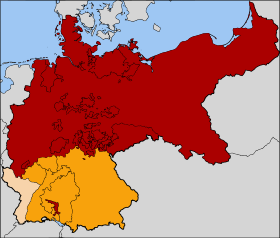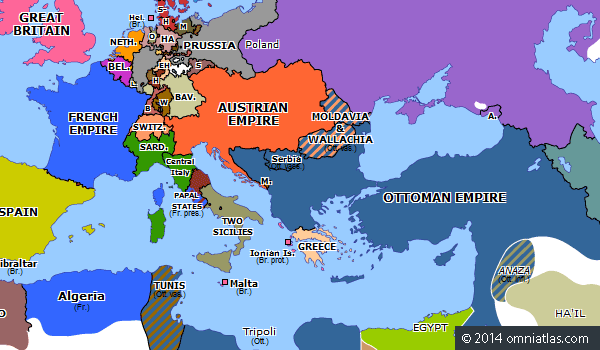Question #b55a0
1 Answer
Examples below
Explanation:
There are several good examples of nationalism pre WW1.
Germany
Firstly, right after Prussia beat France in the Franco-Prussian war (1871), Prussia founded the German Empire, consisting of the Northern German States (or The North German Confederation), with the southern German states, which were typically under Austrian influence. There's actually a song invented at the time called "Was ist des Deutschen Vaterland", which exemplified what I'm saying.
In the case of Germany, it led to rising in tensions because Nationalism brings this spirit of invincibility within a country, which then encourages young men to fight for their nation, for the sake of it. Basically, the fact that Britain and France were the main colonizers ticked off some Germans, giving them a reason there as to dismantle their empires (providing ancillary cause for a war, which led, for example to the Agadir crisis [1] in 1911, wherein French troops occupied Morocco, the Germans got angry, and demanded compensation. The French gave them some of Cameroon).
 https://en.wikipedia.org/wiki/North_German_Confederation#/media/File:Map-NDBsvg
https://en.wikipedia.org/wiki/North_German_Confederation#/media/File:Map-NDBsvg
Italy
In the 19th century, Italy saw a massive rise in nationalism as well, which had occurred primarily due to foreign occupation (the Austrians in Venice, for instance). Basically, the Kingdom of Sardinia managed to get some of central Italy because they requested to join Sardinia (like in the case of Germany). They essentially end up conquering the rest of Italy by 1861, where the Kingdom of Italy is formed (Rome became the capital in 1871, because the Papal states remained independent.)
What is said above can be found in a song called the "Garibaldina*" (A song that Italian volunteers sang during the wars of unification), where it says :
In cold iron, garibaldini!
Come on! Hooray! Italy goes!
Outside, foreigners, out of here!
 http://omniatlas.com/maps/europe/18591203/
http://omniatlas.com/maps/europe/18591203/
This led, in the Italian case, for them to declare war on Austria-Hungary (in 1915), because Austria-Hungary owned Istria (it's east of Venice), which was a predominantly Italian speaking land; this was also a obviously due to nationalism.
The Balkans
The last example I shall give consists of the Balkans, as the whole war started due to tensions in there.
Basically, the Austrian Empire became the Austro- Hungarian Empire in 1867, which basically gave Hungarian citizens the same status enjoyed by Austrians. Obviously, the rest of the minorities in the Empire (Bosnians, Croatians, Slovenians, Czechs, etc.), because they were not given the same privilege, aside from them not really wanting to be under Austrian rule to begin with. This, of course, led to tensions when a Serb (the Austrians occupied a part of Serbia), assasinated Archduke Franz Ferdinand, wherein their political objective was to get the Slavic provinces to rebel, to then form Yugoslavia.
There are other examples, like France wanting Alsace-Lorraine back after losing it to Germany in 1871, but it'd make the post far too lengthy, and I reckon this gives you a relatively clear picture regarding Nationalism pre World War 1.
Footnotes:
1: https://en.wikipedia.org/wiki/Agadir_Crisis
*"Garibaldina" of course comes from the person, Giuseppe Garibaldi, you can learn more about him here: https://en.wikipedia.org/wiki/Giuseppe_Garibaldi

